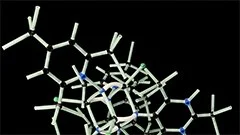Introduction
Oncology, the study of cancer, has witnessed a remarkable evolution in recent years. This transformation can be largely attributed to advances in molecular biology and genetics that have enabled the identification of key genetic alterations underlying cancer development and progression. In this course, we will delve into the intricacies of oncology at the molecular level, exploring various aspects such as oncogene activation, tumor suppressor gene inactivation, DNA repair deficiencies, epigenetic modifications, angiogenesis, metastasis, and targeted therapies.
Cancer Genetics
Oncogenes
Oncogenes are genes that have the potential to cause cancer when they are abnormally activated or mutated. These genes typically encode for growth factor receptors, enzymes, transcription factors, or cytoskeletal proteins, and their dysregulation can lead to uncontrolled cell proliferation and survival.
Ras Family Oncogenes
The Ras family consists of four members: HRAS, KRAS, NRAS, and RRAS. These genes play crucial roles in signal transduction pathways that regulate cell growth and differentiation. Activating mutations in these oncogenes have been identified in a wide variety of cancers, including colorectal cancer, pancreatic cancer, and melanoma.
Tumor Suppressor Genes
Tumor suppressor genes are responsible for maintaining the normal function of cells by inhibiting cell proliferation, promoting DNA repair, and inducing apoptosis when necessary. Loss or inactivation of these genes can lead to uncontrolled cell growth and cancer development.
TP53
The p53 tumor suppressor protein is a transcription factor that plays a critical role in maintaining genomic stability. Mutations in the TP53 gene are found in more than 50% of all human cancers, making it one of the most frequently mutated genes in cancer. These mutations lead to loss of p53 function, allowing cells with DNA damage to survive and proliferate.
DNA Repair Deficiencies
DNA repair deficiencies arise from genetic alterations or epigenetic modifications that impair the ability of cells to correct DNA damage. This can lead to an accumulation of mutations over time, increasing the risk of cancer development.
Hereditary Breast and Ovarian Cancer (HBOC) Syndrome
HBOC syndrome is caused by germline mutations in the BRCA1 or BRCA2 tumor suppressor genes. These genes play essential roles in DNA repair through homologous recombination, and their mutation can predispose individuals to breast, ovarian, prostate, and pancreatic cancer.
Epigenetic Modifications
Epigenetic modifications refer to changes in gene expression that do not involve alterations to the DNA sequence itself. These modifications can be heritable and play important roles in cancer development and progression.
DNA Methylation
DNA methylation is a common epigenetic modification that involves the addition of a methyl group to the cytosine residue of DNA. This modification can lead to gene silencing by preventing the binding of transcription factors or inhibiting the action of the enzymes that read and interpret the genetic code.
Histone Modifications
Histones are proteins around which DNA is wrapped, and their chemical modifications play crucial roles in regulating gene expression. Abnormal histone modifications have been implicated in cancer development through a variety of mechanisms, including the deregulation of gene expression and the alteration of chromatin structure.
Angiogenesis and Metastasis
Angiogenesis is the process by which new blood vessels are formed from pre-existing ones. This process plays essential roles in tissue growth, repair, and tumor development. Tumors require a blood supply to grow beyond a certain size, and angiogenic factors produced by cancer cells promote vessel formation to meet their needs.
Metastasis refers to the spread of cancer cells from the primary tumor site to distant locations in the body. This process involves several steps, including local invasion, intravasation, survival within the circulation, extravasation, and colonization at the secondary site.
Targeted Therapies
Targeted therapies are drugs that specifically inhibit molecular targets involved in cancer development and progression. These treatments aim to reduce the likelihood of drug resistance by targeting critical pathways or processes unique to cancer cells.
Monoclonal Antibodies
Monoclonal antibodies are immune system proteins that can be engineered to recognize and bind specific molecules on the surface of cancer cells. This binding triggers various immune responses, such as cell death, inhibition of growth, or activation of the immune system, leading to the destruction of the targeted cancer cells.
Tyrosine Kinase Inhibitors (TKIs)
Tyrosine kinases are enzymes that play crucial roles in signal transduction pathways regulating cell growth and differentiation. Activating mutations in these oncogenes can lead to uncontrolled cell proliferation, making them attractive targets for therapeutic intervention. TKIs function by inhibiting the activity of these enzymes, thus blocking the signaling cascade that leads to cancer development.
Immune Checkpoint Inhibitors (ICIs)
Immune checkpoints are mechanisms used by the immune system to regulate its response to prevent autoimmunity and maintain self-tolerance. Cancer cells can exploit these checkpoints to evade immune destruction, but ICIs block their action, allowing the immune system to recognize and attack cancer cells more effectively.
Conclusion
Understanding the molecular basis of oncology is essential for the development of novel targeted therapies that can improve patient outcomes while minimizing toxicity. By exploring various aspects of cancer genetics, DNA repair deficiencies, epigenetic modifications, angiogenesis, metastasis, and targeted therapies, we have gained a comprehensive understanding of the molecular mechanisms underlying cancer development and progression.
MCQ: Test your knowledge!
Do you think you know everything about this course? Don't fall into the traps, train with MCQs! eBiologie has hundreds of questions to help you master this subject.
These courses might interest you
Create a free account to receive courses, MCQs, and advice to succeed in your studies!
eBiologie offers several eBooks containing MCQ series (5 booklets available free for each subscriber).



